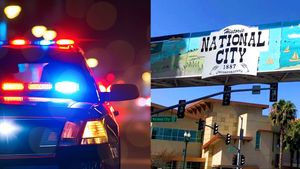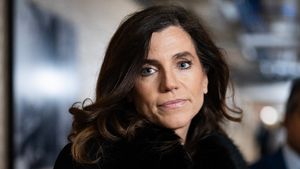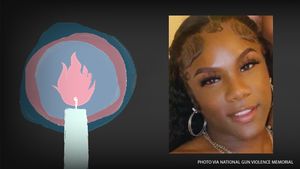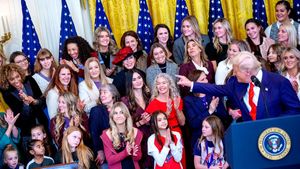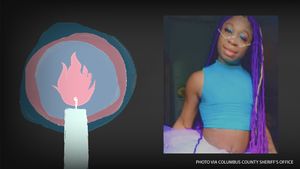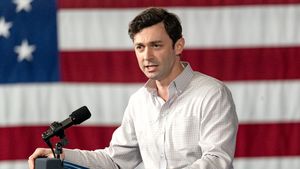In the aftermath of the presidential election, where an overwhelming number of people decided to vote for a convicted felon who has been found liable in court for sexual abuse and bragged he would "protect" women "whether the women like it or not," women have started looking for alternatives to supporting the patriarchy even in their own personal lives.
If you spent any time on social media in the past week, you've likely noticed an influx of women talking about South Korea's 4B movement and may have even heard the term "political lesbianism" bandied about. But what is political lesbianism, and why are some women finding it an attractive alternative to dating, marrying, or having sex with men?
What is political lesbianism?
Political lesbianism started in the late 1960s as part of second-wave feminism in response to overwhelming levels of sexism and compulsory heterosexuality. It is a form of radical feminism where women make a political choice to stop dating, marrying, and sleeping with men. Asking women to kick men out of "your beds and your heads" and abandon heterosexuality doesn't mean that political lesbians are required to have sex with women. According to the Leeds Revolutionary Feminist Group, "all feminists can and should be lesbians. Our definition of a political lesbian is a woman-identified woman who does not fuck men. It does not mean compulsory sexual activity with women."
Why is political lesbianism gaining traction now?
Since Trump was elected, political lesbianism and the 4B movement have been trending on social media because of his blatant disregard for women’s rights. He has loudly taken credit for stacking the Supreme Court so that it would have enough conservative justices to reverse Roe v. Wade, which has resulted in women losing bodily autonomy and many women suffering or dying because of a lack of access to healthcare. Misogynists have also been emboldened by Trump being in power again. Neo-Nazi Nick Fuentes went viral last week for corrupting the feminist rallying cry “My body, my choice” to “Your body, my choice,” and “alpha male” influencer and accused sex trafficker Andrew Tate told women, “You no longer have rights.” Women on social media are also reporting an influx of violently misogynistic speech and abuse online and on dating apps.
Is political lesbianism connected to the 4B movement?
The two movements aren’t connected but share similar origin stories and DNA. The 4B movement reportedly started in South Korea in 2019 as a bold way for women to fight against a rise in gender-based violence as well as unfair expectations around dating, marriage, and having children. It is called 4B because it is a rejection of sex with men (bisekseu), giving birth (bichulsan), dating men (biyeonae), and marrying men (bihon).
Since Trump was elected, women on social media in the United States have announced they are joining the 4B movement, while others, especially in France, have been curious about political lesbianism as the country grapples with systemic gender inequality and its paltry response to the #MeToo movement, The Guardian reports.
What is the controversy surrounding political lesbianism?
The controversy that has plagued the movement since its inception revolves around the idea that sexuality is a choice. While some react negatively to lesbianism being seen as a political choice or tactic and think the movement is appropriating the term “lesbian" in a dismissive and potentially dangerous way, proponents say that it is a rejection of compulsory heterosexuality and the patriarchal political structure. They see it as more of a sexual labor strike than an attempt to claim sexuality is a choice.



































































